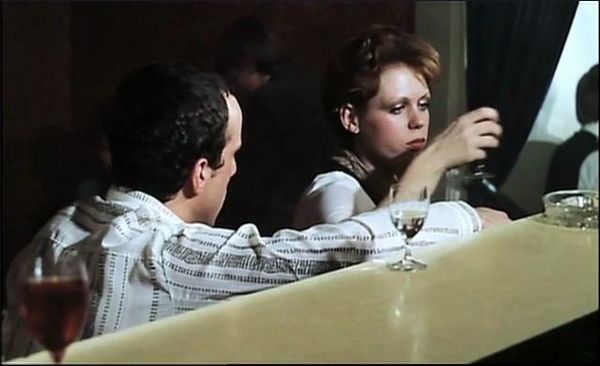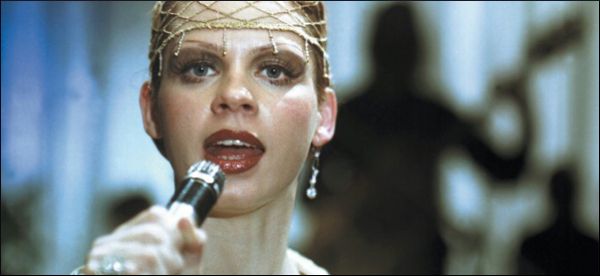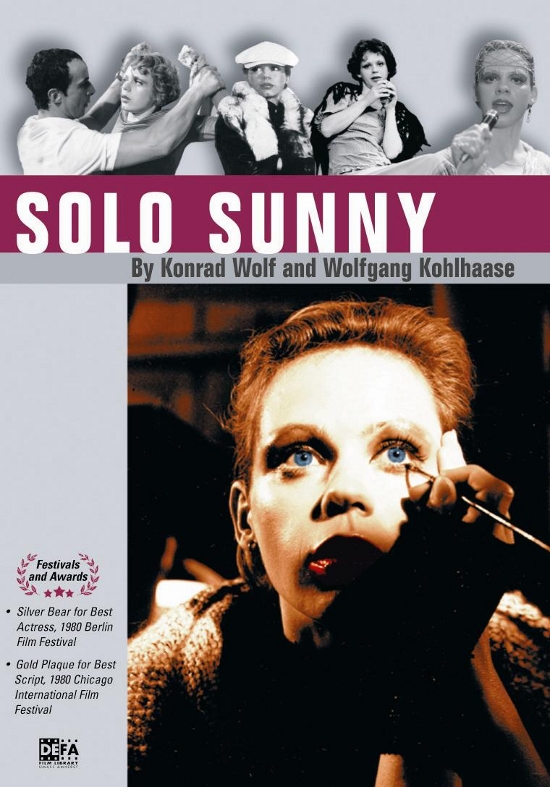One of the most successful movies ever produced by the East German DEFA studios, Solo Sunny won the Silver Bear for Best Actress at the Berlinale Film Festival in 1980. It proved to be a popular film not only in East and West Germany but also abroad. Konrad Wolf was an important filmmaker in the German Democratic Republic, and though he was known to be rather loyal to the regime, he surprised critics as well as the local administration with his realistic portrayal of a female singer with an unconventional goal who lives as a social outcast. It was the last film he finished before his death in 1982.
"One of the most successful movies ever produced by the East German DEFA studios."
Solo Sunny is about Ingrid “Sunny” Sommer, a girl who throws away her predestined life as a worker in order to fulfill her dream and become a professional singer. On her way out of ordinary life, she struggles with a judgmental neighborhood that looks down on her moral conduct. She tours the rural GDR with a variety music act in order to earn a living, but this is not exactly the life she wanted for herself. Besides the unsatisfying response she receives from her audience and her band, she is also sexually harassed by the saxophonist Norbert, while the master of ceremonies humiliates her in front of the audience. Meanwhile, she falls in love with the philosopher Ralph, who plays the saxophone to finance his dissertation on death. They have an affair, but soon Sunny realizes that she’s not the only woman in Ralph’s life. She dumps him, parts with the variety show, and tries to get back to her old life as a working woman. Yet she has changed too much and the attempt does not last. She tries her luck as a soloist, but when this attempt fails as well, she hits rock bottom and overdoses on drugs. Only then does Sunny come to grips with what she wants out of life and eventually decides to find another band.

The film is set in East Berlin and mainly features the Berlin-Brandenburgish dialect, which is a “metrolect,” a dialect spoken in a large city. Sunny’s unwanted admirer and cab driver, Harry, has the strongest dialect of all the characters, followed by Norbert. Ralph, an educated philosopher, talks in High German, while Sunny does not speak with a strong Berlin accent. However, some aspects of Berlin German seep into her speech, such as the merging of syllables, as in: “Was issn’ los?” (“Was ist denn los?” in standard German, or “What’s the matter?”). Similarly, when Norbert makes an advance on her, she says, “Kannste nich‘ mal was andres sagen?“ (“Kannst du nicht mal etwas anderes sagen?,” or “Can’t you say something else?”).
"If you want an authentic glimpse into early 80’s East Berlin, you have to watch this movie."
Also, in the Berlin dialect, at the end of a sentence, the suffix “-ig” changes to “-ich,” as in “merkwürdich” (“merkwürdig,” or “strange”). Another feature of the dialect is the mixing up of the accusative and the dative. When Sunny and Harry talk at a bar, after her solo performance, this peculiarity makes for a funny scene. Harry says, “Kannste Jeld sparen” (“Dann kannst du Geld sparen,” or “So you could save money”) and “Dit kann doch nich sein. Bei der Kohle, die ick mache, kann ick doch nich doof sein” (“Das kann doch nicht sein. Bei dem Geld, das ich verdiene, kann ich doch nicht doof sein,” or “This can’t be. Considering the money I make, I can’t be stupid”). In these two lines, he merges two words and drops the preposition, as in “kannste,” while the “g” sound is transformed into a “j” sound in “Jeld,” “das” becomes “dit,” “ich” turns into “ick,” and the “t” at the end of “nicht” is omitted.
So, if you want an authentic glimpse into early 80’s East Berlin, you have to watch this movie. It not only portrays the language but also shows beautiful images of the Prenzlauer Berg backyards and offers insights into the housing situation of old urban areas. The characters appear to be natural and real, just like the filming locations.





